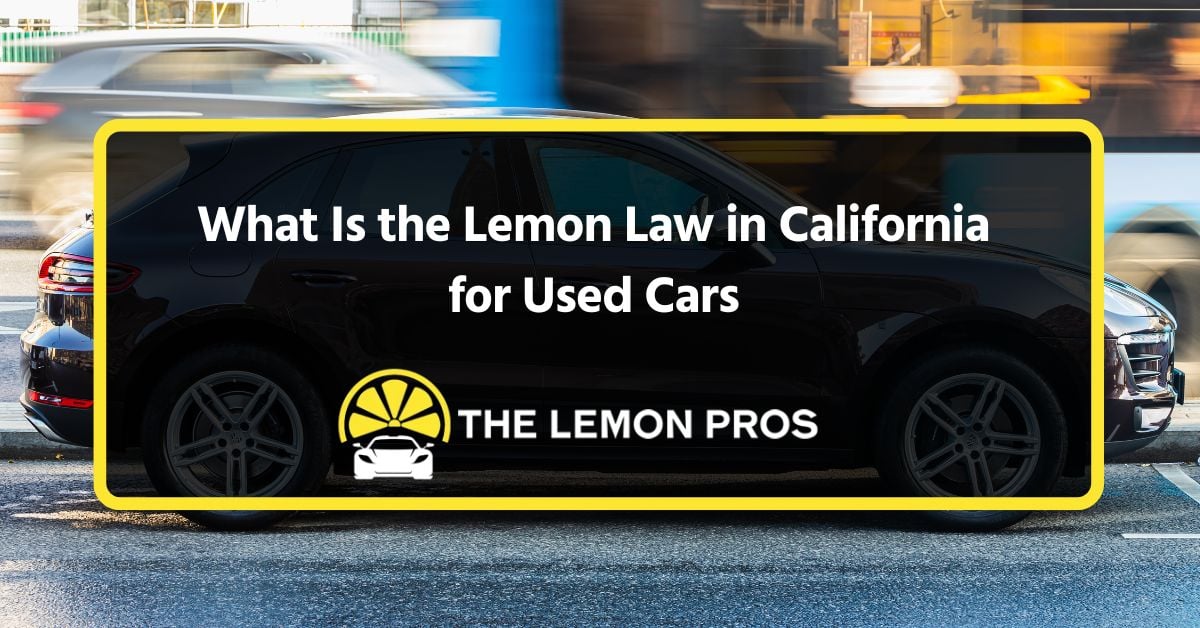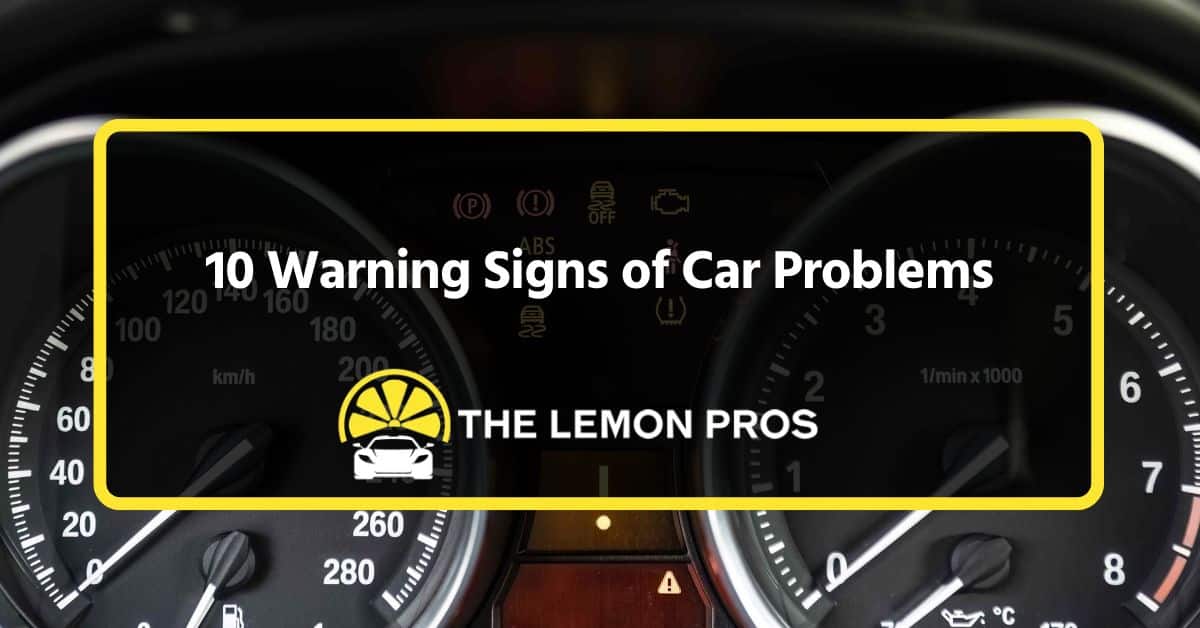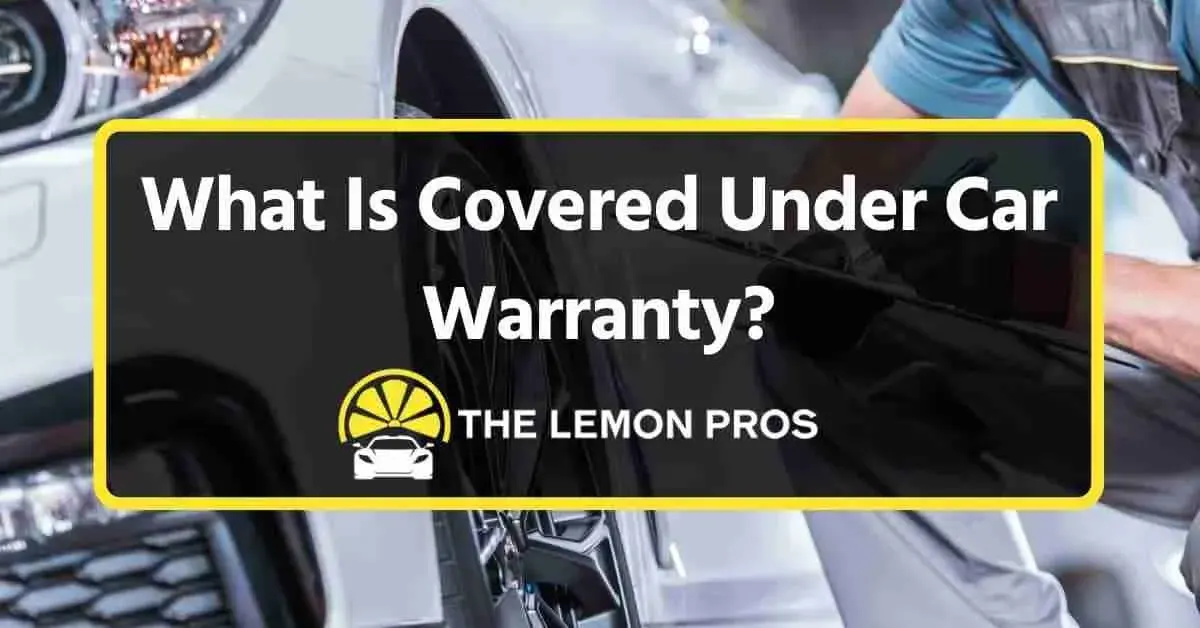
What Is Covered Under Car Warranty?
Car warranties ensure that drivers won’t have to pay out of pocket when there’s a defect in vehicle manufacturing. Some examples of typically covered defects include the engine, transmission, electrical system, air conditioning and more. While a manufacturer's warranty is usually associated with new cars, an extended warranty covers issues with older vehicles as well. Warranties offer peace of mind and allow the manufacturer time to repair any defects that would otherwise cause ongoing issues.
The Lemon Pros know how to work with car manufacturers and dealers to get the compensation you deserve if you’re driving a defective vehicle that is under warranty. We’ve worked with thousands of other Californian clients and secured them a replacement vehicle or refund. Don’t get stuck with a lemon. Contact us today for a free consultation.
With this guide, you will gain an in-depth understanding of what the car warranty covers, the various types of warranties that exist, and learn how to file a claim if the defect doesn’t get repaired. If you need to file a claim, you will learn more about the role of car warranty lawyers and learn a few tips to maximize your coverage.
Table Of Contents
- What Are Car Warranties?
- What Does a Warranty Cover on a Car?
- What Isn’t Covered Under an Extended Car Warranty?
- What Is the Difference Between a Car Warranty and Car Insurance?
- How to Make a Claim on Your Car Warranty?
- Tips for Maximizing Your Warranty
- Is an Extended Car Warranty Worth It?
- What Is the Lemon Law in California?
- Need a Lemon Law Attorney?
- FAQ
What Are Car Warranties?
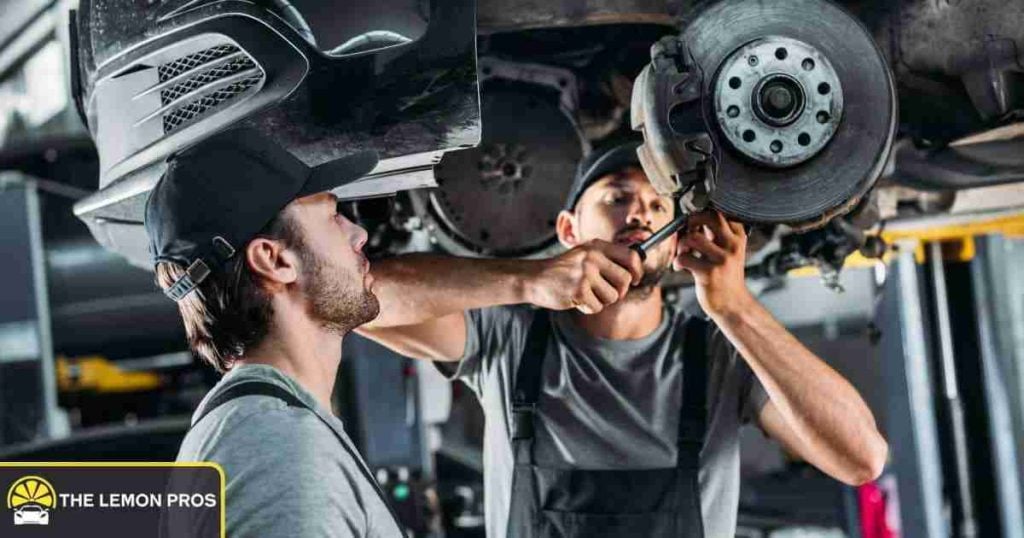
A car warranty is a contract between the vehicle manufacturer (or third party) and the owner or lessee of the car, which covers various repairs and services on a vehicle, normally for a specific mileage or period. Each type of car warranty offers a different type of protection, which we will cover in greater detail in a minute.
New cars often include a manufacturer’s warranty that provides powertrain protection, bumper-to-bumper coverage, corrosion and rust protection, along with emissions coverage. There are also extended warranties that kick in once the factory warranty ends.
Manufacturer’s Warranty vs. Extended Warranty
Many people get the manufacturer’s and extended car warranties confused, but each has a separate purpose. The manufacturer’s or factory warranty is included with a new car purchase. It lasts for a specified amount of time, often around three to five years and 36,000 to 60,000 miles. This comprehensive plan covers just about everything that’s not considered consumable or normal wear and tear, such as wiper blades, brake pads, etc.
The new car warranty also provides coverage for most major vehicle systems, but it will not cover routine maintenance items, such as an oil change. It’s only designed for defective components that should not have needed replacement during the specified timeframe.
Once the manufacturer’s warranty expires, extended car warranty coverage can be purchased to continue protection. The level of protection offered depends on the plan chosen and the length of coverage you decide on.
The factory car warranty doesn’t cost anything. It’s provided with each new car purchase or lease. On the other hand, there is an additional cost for extended warranties, but that price depends on what level of protection is chosen.
If a powertrain warranty is all that’s needed, the premium is going to be much lower than if the driver wants a bumper-to-bumper warranty. Additionally, vehicle service contracts are available from a variety of third-party sellers, each offering a different price point and various payment plans. It’s wise to shop around before choosing a vehicle service contract for your car.
What Does a Warranty Cover on a Car?
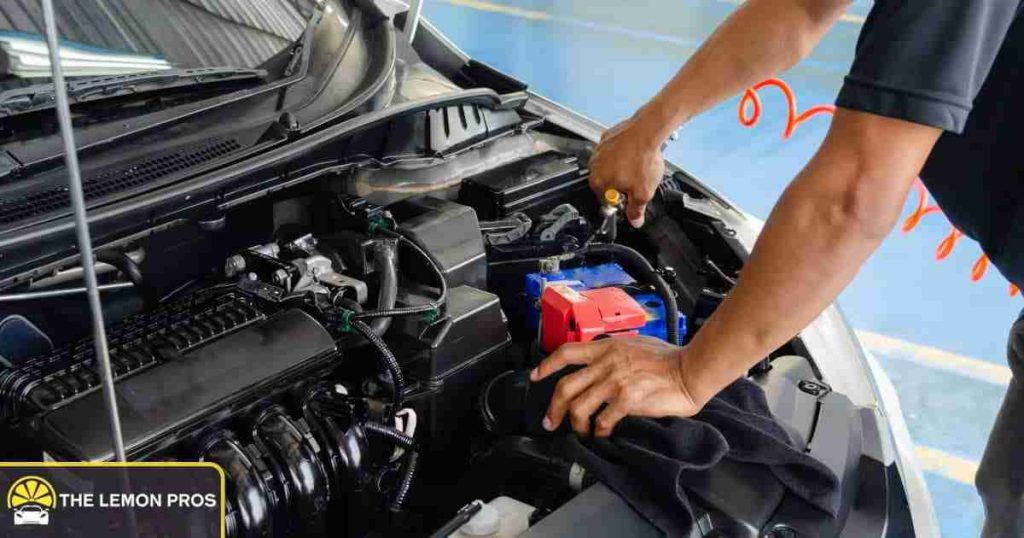
The original factory warranty typically involves several different components for specified intervals. Additionally, extended car warranties can be customized to include any of the following options.
Powertrain Warranty
When asking what a warranty covers on a car, you must first look at the powertrain coverage. Powertrain warranties cover all the major mechanical components. They cover the car’s engine, transmission and many drivetrain components. New vehicles often have powertrain coverage for five to ten years, lasting 60,000 to 100,000 miles.
Bumper-to-Bumper Warranty
What does a new car warranty cover? With the new car, you can expect bumper-to-bumper coverage, which protects most of the major automotive systems, from the electrical system to the seat belts. It even covers unexpected repairs to the air conditioning. Typically, the bumper-to-bumper plan ends much sooner than the powertrain coverage, often lasting three to five years or 36,000 miles to 60,000 miles.
Are electrical components covered under a car warranty? With the bumper-to-bumper protection, most electrical system issues are covered. Just keep in mind that, while bumper-to-bumper warranties provide the most comprehensive coverage of all protection plans, there's no coverage for wear and tear items or maintenance, such as tire rotations.
Corrosion Warranty
The corrosion warranty ensures unexpected repair costs for rust or corrosion, which are due to a defect in manufacturing, are covered. Typically, these covered repairs are valid for anywhere from five to 12 years, included with the factory warranty, depending on the manufacturer.
Roadside Assistance
While not technically a warranty, most plans do include roadside assistance. New car warranties most often offer one to two years of free service, while extended car warranty companies will usually include it as part of most mechanical breakdown insurance plans. Depending on the coverage, you may receive complimentary towing, free fuel fill-up, flat tire changes, battery service, and rental car reimbursement.
Emissions Coverage
Today’s cars also come with an emissions warranty that protects all car repairs related to the emissions control system, including parts such as the oxygen sensors and catalytic converter. This warranty keeps your vehicle compliant with the Environmental Protection Agency (EPA) emissions standards. Typically, coverage lasts between two and eight years or 24,000 to 80,000 miles.
Hybrid/Battery Warranty
With the rise of EV and hybrid vehicles, there is now a warranty specifically for the unique powertrain and hybrid battery. This warranty usually covers the battery pack, electric motor parts, the hybrid or EV transmission, and the charging system. While some states only require an eight-year warranty, California regulations mandate 15 years and 150,000 miles of coverage, except for the battery, which only needs to be ten years.
Tire Warranties
With a new car warranty, the tire is only covered if there’s a defect in workmanship. For used cars or vehicles that have had the tires replaced, the tire manufacturer is responsible for any warranties. Some tire shops also offer road hazard protection, giving you a warranty if you run over nails or have a blowout.
What Isn’t Covered Under an Extended Car Warranty?
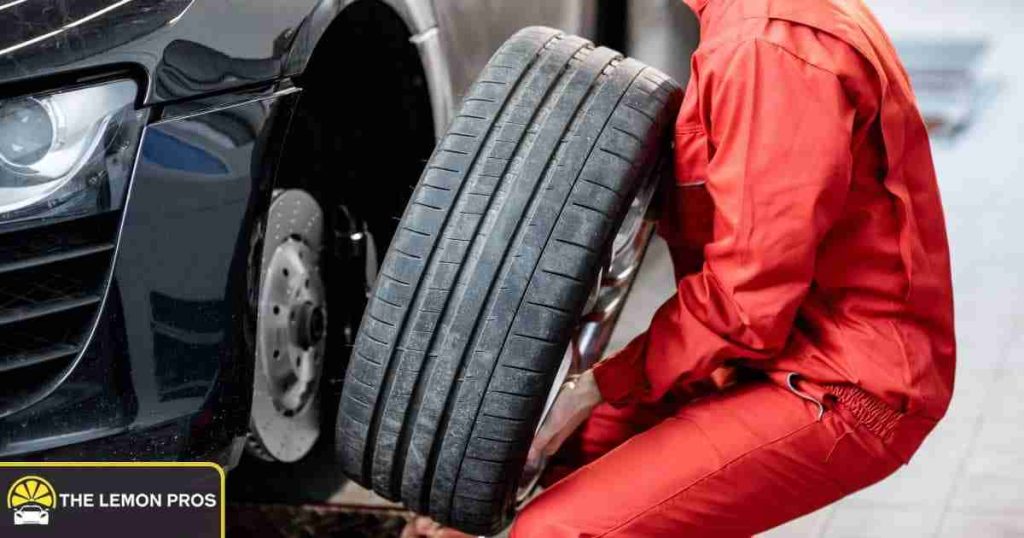
The new car warranty and extended car warranty can cover a wide range of components, but both typically exclude normal wear and tear. Any service that needs to be done periodically, such as brake pad replacement or new tires, is going to be excluded from most plans. There’s also no coverage for routine maintenance, such as fluid top-offs and oil changes.
If you are in an accident with your used car, any damage is not covered by aftermarket warranties. Instead, this damage is covered by your car insurance, depending on the coverage you’ve opted for.
Furthermore, aftermarket parts and modifications made to the vehicle may alter what is covered. While the federal Magnuson-Moss Warranty Act prevents companies from denying claims if they are unrelated to the aftermarket parts, there’s not going to be coverage for the parts if the modification causes the failure. It’s important to read all of the warranty's fine print before making any modifications.
What Is the Difference Between a Car Warranty and Car Insurance?
While we covered in-depth what the warranty provider covers, it’s vital to understand the differences between a warranty and your car insurance plan. While the warranty company is going to deny any claims related to an accident, the insurance company shouldn’t, as long as you have the right coverage. With liability insurance, the company handles any bills related to damage you’ve caused to another vehicle during an accident, while comprehensive coverage also pays for your repair bills. Additionally, some coverage limits include medical expenses and loss due to vandalism, theft or natural disasters.
How to Make a Claim on Your Car Warranty?
Before paying for expensive repairs on your vehicle, consider filing a claim. The first step is to make sure your plan covers the repairs. When the car breaks down, confirm that it is still within the coverage period and that the components are included in the service contract.
Next, you want to document the problem. With a factory warranty, the qualified dealership handles most of this step for you. However, it’s still wise to keep your own records. When dealing with many extended warranties, you will be responsible for showing the service history and documenting the problem. In some situations, you may even have to pay the warranty repair upfront and wait for reimbursement, so it would be critical to cross all of your t’s and dot all of your i’s.
When having warranty work provided, you need to be cautious about where you take your vehicle. You need to know whether your extended car warranty will cover taking your vehicle to any mechanic you want before choosing a location, or your claim may be denied. Some warranty plans require that the car go back to a dealership or specific independent mechanics.
Tips for Maximizing Your Warranty
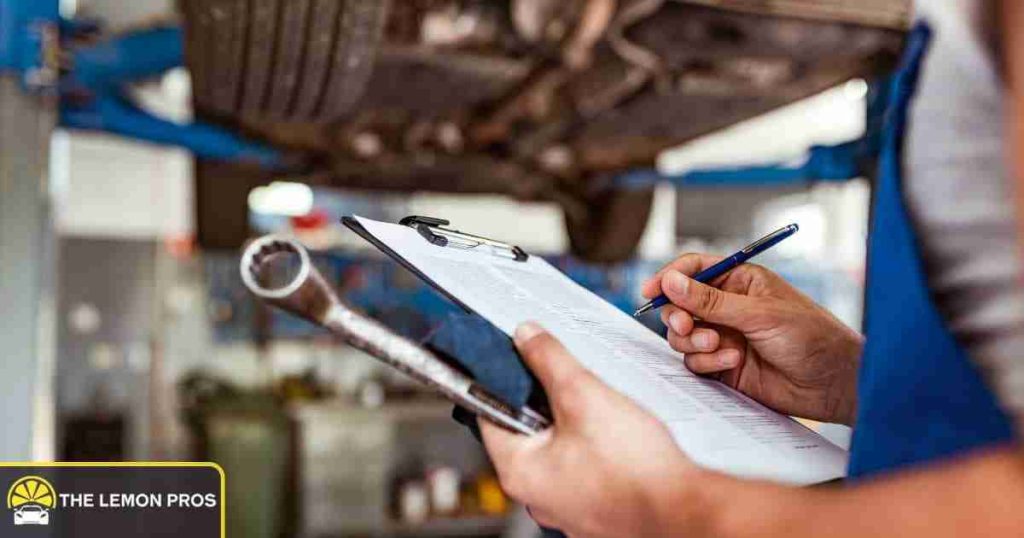
Whether you have a new car warranty or extended coverage, it’s important that you understand everything that’s included and the exclusions. Otherwise, you may try filing a claim for something you need to pay for, or you may pay out of pocket for something that’s covered. Carefully read through all of the terms of the warranty before getting any service performed.
Additionally, it’s important to keep your car well-maintained and cared for. Keep up with all of the scheduled maintenance to ensure the major systems work as intended. This way, if there’s a failure, you can’t be blamed for neglecting the car.
In the same respect, you should keep records of all the maintenance and repairs performed. Whether you maintain the car yourself or take it to a shop, it’s vital to have these records in case a dispute ever arises.
If your warranty requires visiting an authorized dealer or service center for repairs, make sure you comply with these instructions. Not all warranties allow for flexibility when choosing a location, and while this can be frustrating, complying ensures future repairs will be paid for.
Finally, it’s essential to understand your rights under the Lemon Law. If the car is repeatedly being repaired for the same failure, it may be time to file a claim. Through the Lemon Law, you may qualify for a refund or replacement vehicle, known as a Lemon Law buyback. Our handy Lemon Law Buyback Calculator helps you estimate what you might be owed.
Is an Extended Car Warranty Worth It?
Not everyone is going to benefit from having an extended warranty. It really comes down to your financial situation. If you can afford to pay for the car repairs out of pocket, you may be better off without a warranty. Consider how much you would save if you never needed the protection. On the other hand, if one trip to the garage will break the bank, it may be wiser for you to choose warranty coverage to protect your financial status.
When deciding if a warranty is necessary, consider the age of the car, its reliability, and your driving habits. If the car is older and less reliable, a warranty may provide some peace of mind. However, you will pay more for an older car than a newer one with fewer miles.
It’s also important to consider the various coverage options. You’ll pay a lot more for bumper-to-bumper protection than a powertrain warranty that simply covers all the parts involved with making the vehicle move, such as the engine and transmission. Considering these are the most expensive parts to repair or replace, you may only need this coverage to feel confident.
What Is the Lemon Law in California?
California’s Lemon Law, known as the Song-Beverly Consumer Warranty Act, protects consumers who have purchased or leased a defective vehicle. For new or used cars to be considered a lemon, there must be warranty coverage and a defect that is unrepairable. The unrepairable defect must substantially impair the use, value or safety of the vehicle.
If the defect is considered a major safety issue, the dealership or manufacturer is given two chances to repair it before the Lemon Law applies. Otherwise, there must be a minimum of four repair attempts made before a claim can be filed.
There’s also a time limit to consider with Lemon Law claims. The defect must show up within the first 18,000 miles or 18 months on a new car. The claim itself doesn’t need to be filed within this time, but it’s important to document every repair attempt and communication with the manufacturer if you want to file a Lemon Law case.

How a Lemon Law Attorney Can Help You
An experienced Lemon Law attorney understands the ins and outs of California laws, specializing in defective vehicles. They aren’t focused on multiple scopes of law, so there’s more of an understanding of the intricacies of the Lemon Law.
By hiring a Lemon Law attorney, you have less to worry about and you are more likely to receive a favorable settlement. A Lemon Law lawyer knows how to work with the manufacturer to get a good outcome. In fact, most car companies don’t want to waste time when you are working with an attorney because of the threat of going to court.
Need a Lemon Law Attorney?
With a deeper understanding of car warranties, you should know what your vehicle is covered for and if further protection is necessary. With so many different plans to be aware of, it’s best to do some research into your options.
We encourage you to get to know the warranty your vehicle has, whether it is brand new or Certified Pre-Owned (CPO). By gaining clarity into the warranty coverage, you will know exactly what’s covered and whether a Lemon Law claim is necessary to earn compensation on a defective vehicle that cannot be repaired.
The Lemon Pros are ready to help with your claim. Our reviews show we are the best Lemon Law attorneys in California, having helped thousands of clients earn the compensation they deserved. With millions of dollars in previous settlements secured, our team is ready to take on your case. Contact us today for a free consultation to see what you may be owed.
FAQ
How Much Does an Extended Car Warranty Cost?
The price depends on what coverage you opt for and the term. It also depends on what type of car you drive. As you evaluate your options, compare the levels of coverage with the premium. You may also adjust the deductible required to change the premium cost.
What Is the Warranty Law on Cars in California?
Car warranty laws are primarily governed by the Song-Beverly Consumer Warranty Act, commonly known as the California Lemon Law. This law protects consumers who purchase or lease new vehicles that turn out to be defective, although there are also some provisions for used cars.
What Doesn't an Extended Car Warranty Cover?
It depends on the type of coverage you choose. The powertrain warranty only covers the essential systems, such as the engine and transmission. In comparison, the bumper-to-bumper warranty offers the most comprehensive protection, covering most components ranging from the electrical systems to the suspension. Most extended car warranties aren't going to cover regular maintenance, such as tire rotations or wear and tear items, such as brake pads.
What Are Some of the Best Extended Car Warranty Providers?
Customers recommend Endurance, Autopom! and Carchex when shopping for different coverage options, but the best provider for your vehicle will depend on the price and what plan you need. We recommend reading customer reviews before making a choice and taking time to review the policy to familiarize yourself with any limitations.


